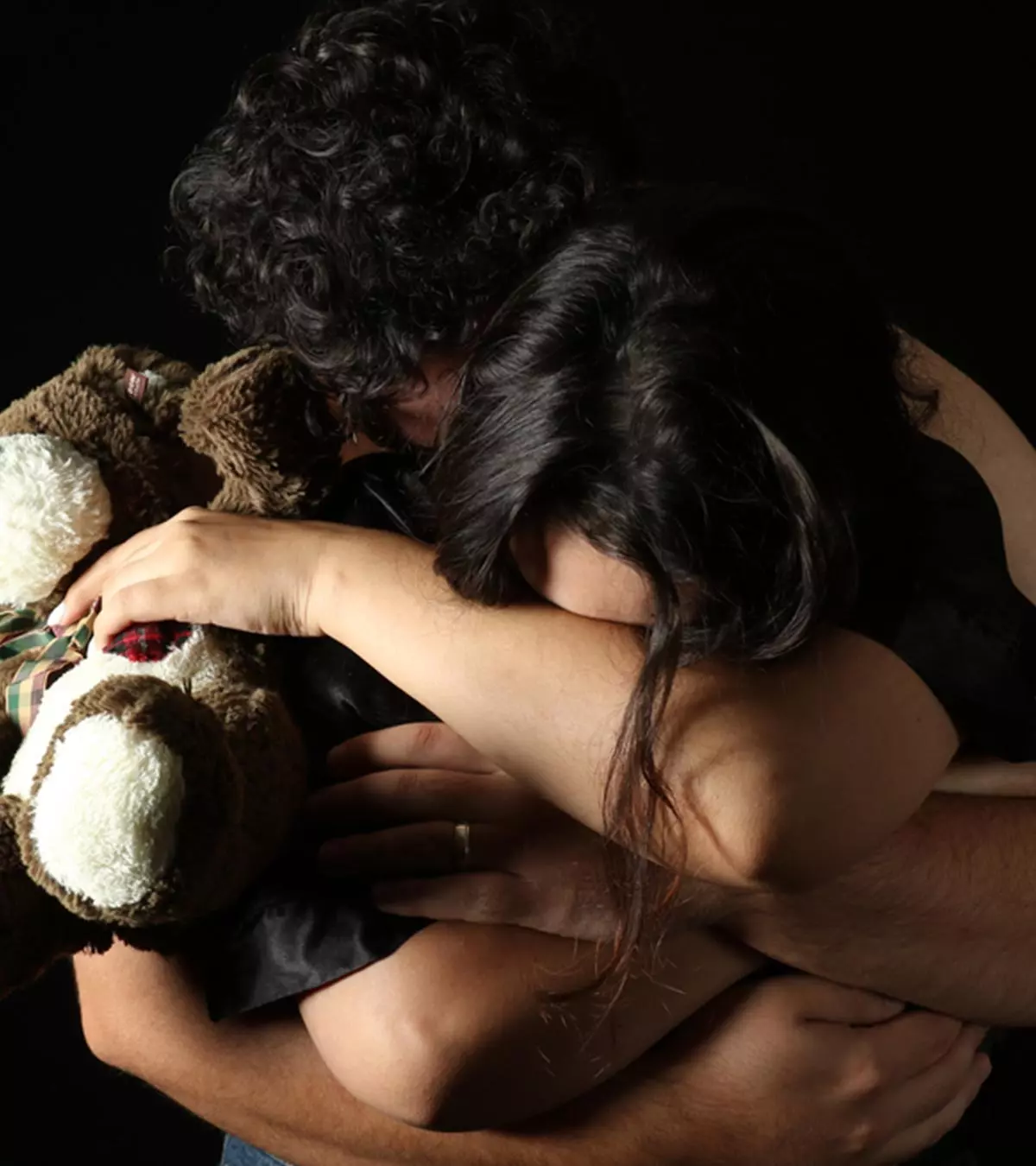
Image: Shutterstock
Recently, famous Hollywood couple — Chrissy Teigen and John Legend — were in the news for all the “wrong” reasons.
Pregnant with their child, Teigen miscarried due to pregnancy complications, leaving the All of Me crooner and his wife distraught. A moment generally accepted as private, the couple decided to share their collective grief online, causing their fans to feel “uncomfortable” at the public display of their loss.
The couple was heavily criticized for their move, with many calling them out for including photos of what had transpired straight from the hospital. But many lauded them for spreading the awareness of the pain of stillbirth and trying to remove the stigma around it.
That said, it’s not really surprising that the couple was widely panned for their move. Openly discussing miscarriages is still a taboo in society. Couples who experience it are expected to grieve privately, keeping the news within their tight-knit circle of friends and family only. As a result, most couples end up going through this immeasurable loss alone, with the father, in particular, bearing the brunt of grieving in isolation.
How A Miscarriage Affects Fathers-To-Be
Image: Shutterstock
Many a time, it so happens that the father often feels helpless when faced with stillbirth. When his partner or wife finally breaks the bad news to him, he obviously feels the natural urge to be there for her. To console her. To support her. And to help her heal in any way possible. Her body, after all, has been through a lot. Add to that the feeling of actual physical loss she experiences and the pain she goes through can seem insurmountable. The hormone fluctuations that come later only make the whole ordeal worse.
At this point, you might feel compelled to tell her sorry a thousand times. Even though you know none of you are at fault. Soothing her and telling her that you love her as she cries in your arms so she can find a release for the pain inside will come instinctively to you. But once she gets surrounded by fellow women to support and carry her through the trauma, you might feel like you don’t know what to do next.
Should you call your friends and family and tell them too? Should you feel sad? Should you grieve? Have you really lost anything other than just a feeling?
Questions like these might swirl around in your head, making you wonder if you have any right to feel how you feel. Pregnancy is conventionally considered to be a woman’s domain. And often, a father’s feelings at stillbirth are entirely ignored. Even though he might be hurting inside, he’ll choose not to show it or talk to anyone about it because conventional masculinity will not allow him to.
Well, you’re not alone. Studies show that it’s quite common for men to feel pressured to offer support to their partners immediately after pregnancy loss. Often carrying out this duty at the expense of their own mental well-being (1). The study also revealed that men too feel grief at the loss of potential fatherhood but are unable to get help for it due to the lack of social recognition of their feelings.
Balance Is Key To Managing Grief Both Parents Feel
Image: Shutterstock
The move Teigen and Legend made to grieve publicly is a laudable one. It brings the natural experience of pregnancy loss under the spotlight, lifting the veil of stigma surrounding it. But as we learn to accept and offer support to the grieving couple, it’s important to lend a helping hand to both partners.
Yes, the mother has a lot of healing to do. Her body and mind have been through immeasurable trauma. But let’s not forget that the father needs healing too. It’s his loss too. And he can only get the space to heal once society accepts and allows him space to grieve without questioning his masculinity.
Image: Shutterstock
Another study points out that social recognition of the pain men experience at pregnancy loss is crucial in helping them recover from the blow (2). Following the recognition, men should also get the facility to seek the support they need. This support can come in any form — be it talking to friends or family or even a therapist, for that matter. It’s entirely up to the man to choose how he copes. It’s up to the rest to understand that his grief is justified too.
On the positive side, hopefully, incidences like Teigen and Legend’s will create an atmosphere of acceptance for a man’s grief in case of stillbirth and help him find the love and support he needs to release the pain within.















